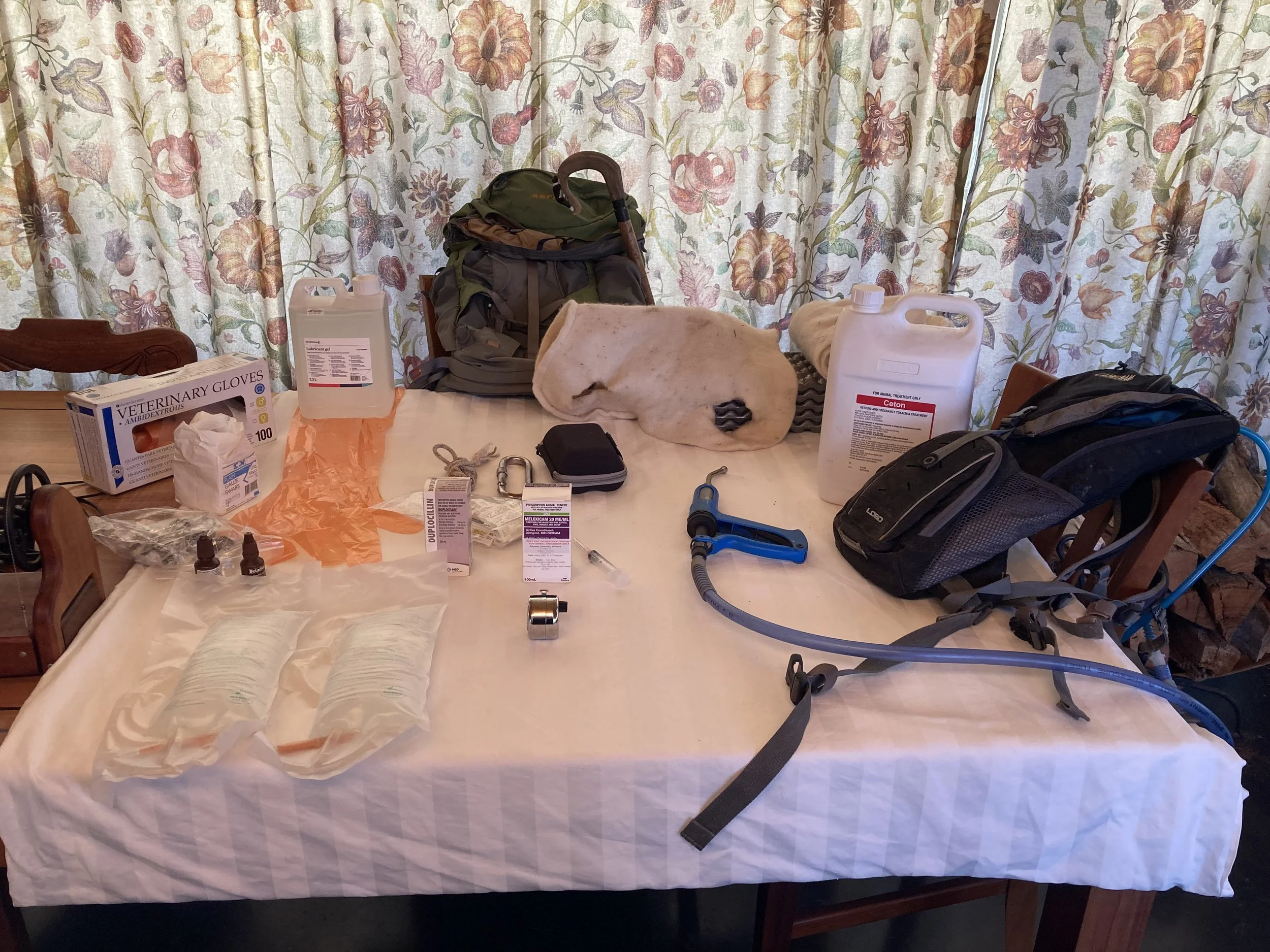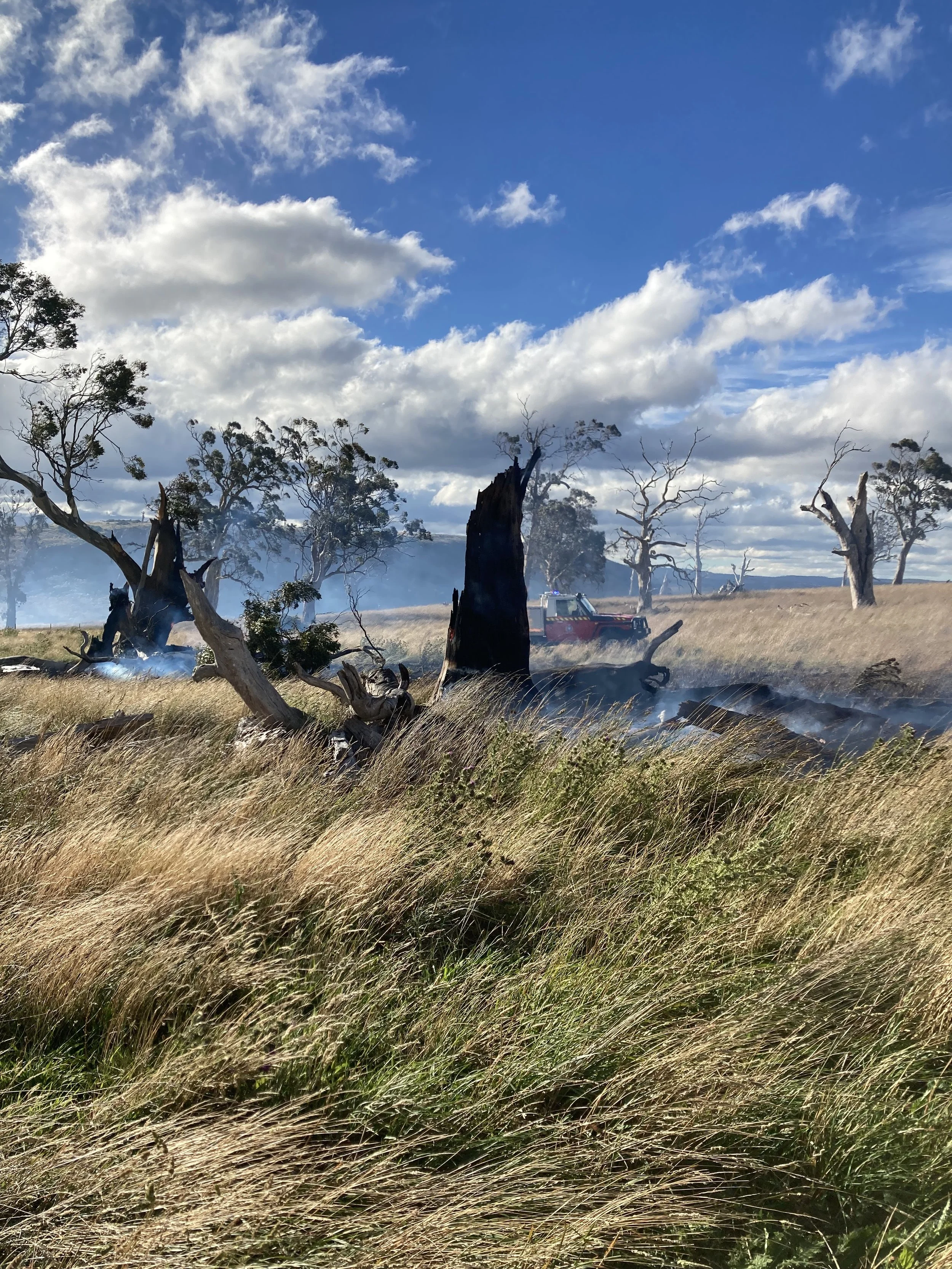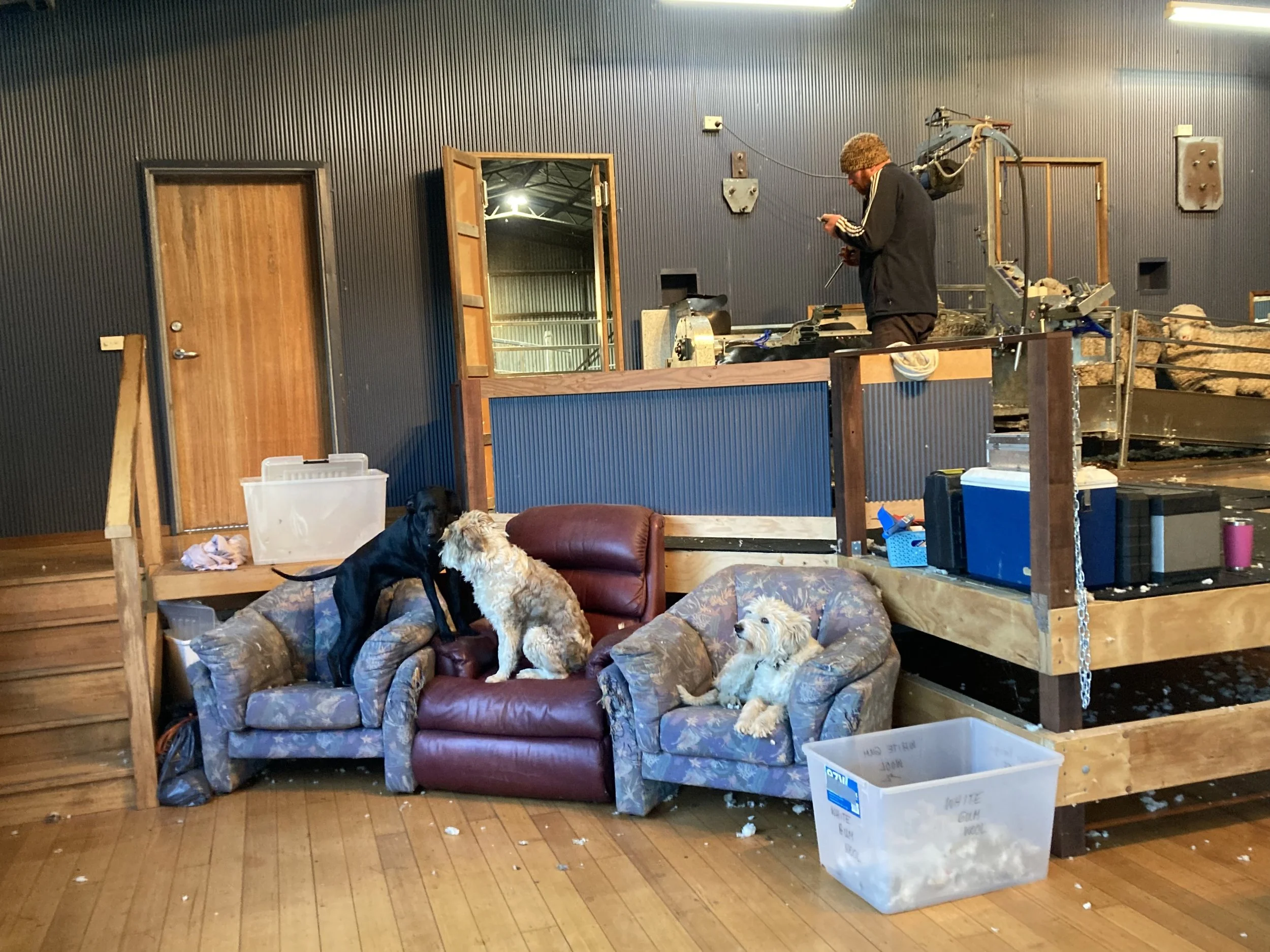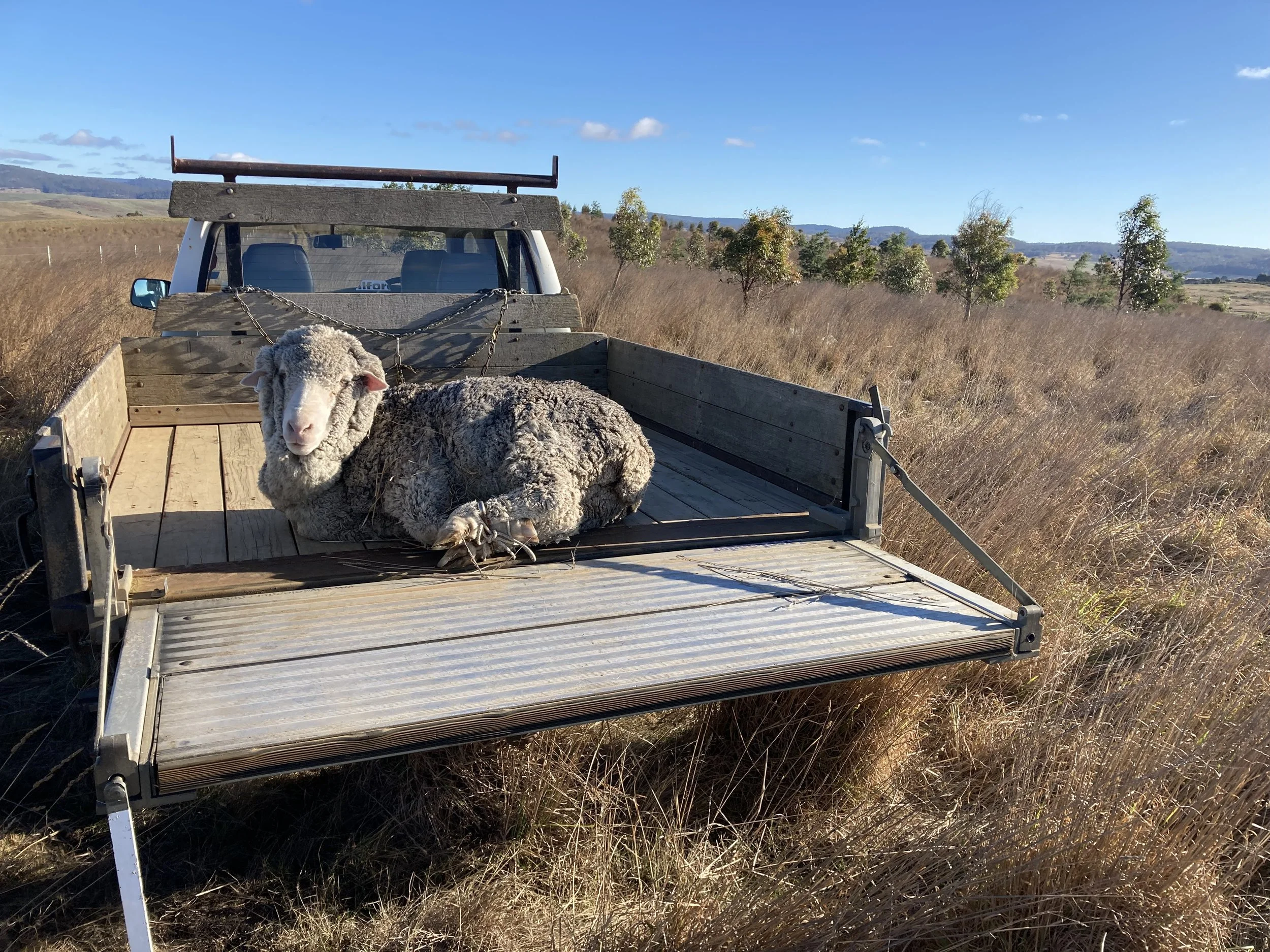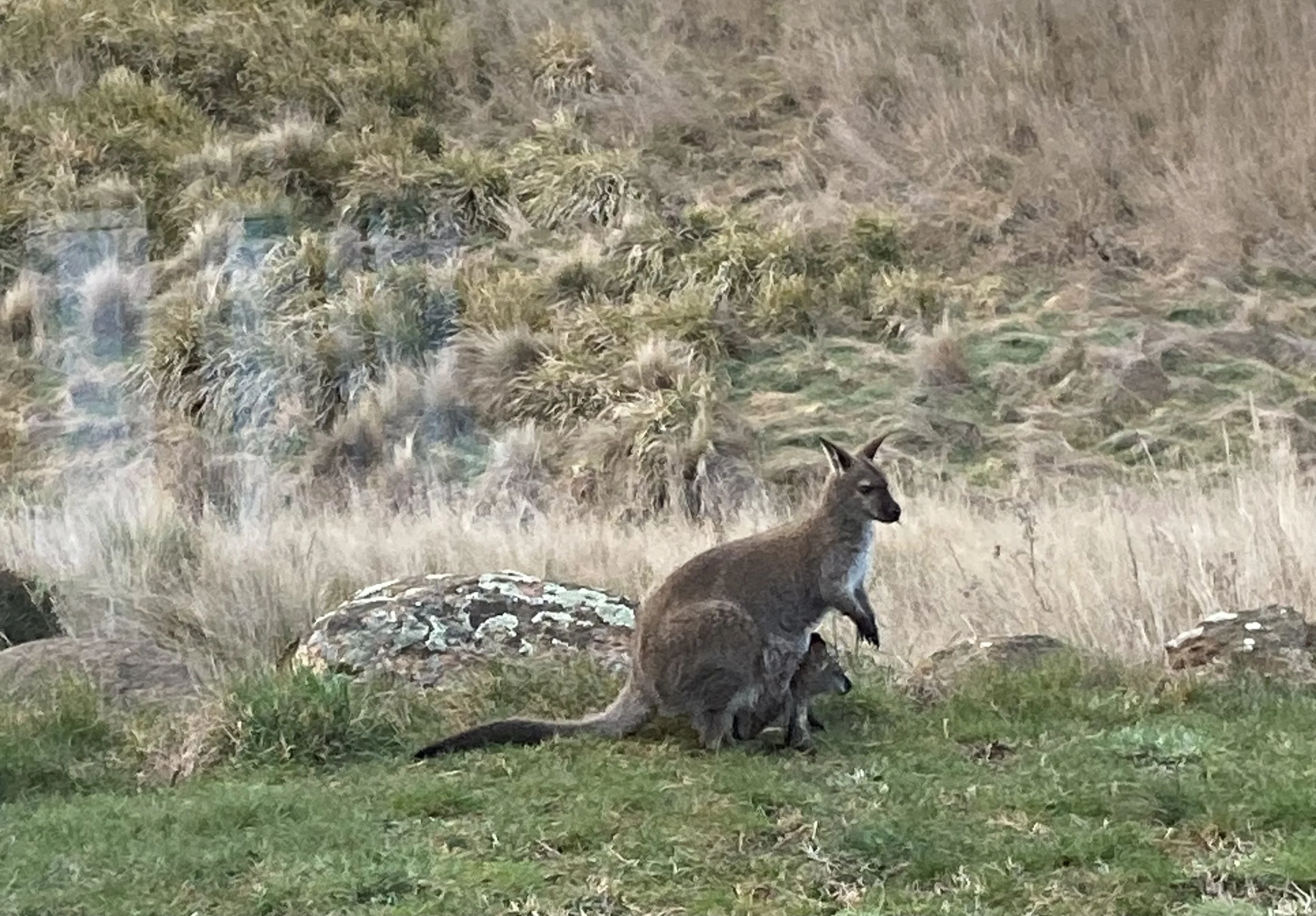What do the ozone hole, coronavirus and climate change have in common? The simple answer is the use of chemical tracers to track where heat is going in the ocean. The full answer will take me a bit longer. But since we’re all sitting at home now, we’ve got plenty of time to learn new things. And one of the things I’m really enjoying about writing these climate change articles is that I’m learning stuff that I assumed I knew, but didn’t.
Itty Bitty Spaceships
On the steep hillside near the western boundary of my property, and visible from the highway as you travel south from Oatlands, is a village of small plastic domes. When they first went up, I used to think they looked like extra-terrestrial vehicles just the right size for a baby Yoda. In fact, they are part of an international research program looking at the effects of climate change on native pastures in many locations around the world. The Tasmanian component of the program is run by Prof Mark Hovenden and his team from the University of Tasmania.
A Bonza Year
Separation Anxiety
In the past, October has been lambing month on my farm. Logically, it makes perfect sense: mid-spring (April equivalent for you in the northern hemisphere) with plenty of new growth for the mamas to make milk. However, year after year, September has seen reasonably settled weather and October has been truly awful.
Sheep Crocodiles
For those of you who don't speak British Commonwealth idiomatic English, a crocodile can also mean a line of school children. The relevance of this term to the real topic of this Yarn will become clear later. (If you are one of those who read the last chapter first, skip to the video at the very end of the Yarn.) The real topic of this yarn is "Do sheep work?" More specifically, do my sheep consciously choose to cooperate in the work of the farm?
Blow, Blow Thou Winter Wind
Shepherding and All That Jazz
As I continue my apprenticeship in shepherding, the subtleties of flock social dynamics are becoming more and more apparent. I’m on the cusp of shifting from the usual approach of “driving” the flock, with the dogs and me at the back, to “leading” the flock, with me at the front and the dogs where they need to be to hold or steer, but not pushing. Don’t get too excited about this cusp—I fully expect to teeter on the point of it for months, as the relationship of trust between me and the flock develops in fits and starts.
Sweetness and Light
If over the last few months I’ve given you the impression that growing White Gum wool is all sweetness and light, November was certainly a counterpoint. It was a tough month, and December followed suit. The refrain has been “desperately dry”—we have had only 60% of our annual average rainfall, and our official 12-month rainfall deficit is sitting in the “severe” category.
The Zen of Shepherding
t is undoubtedly too early for me to write this Yarn. In fact, I’m not supposed to be writing at all today, on two counts: first, it’s meant to be a shepherding day, and secondly it’s a weekend and I’m supposed to turn my computer off for the weekend, to help break the "dumb gas thrall" syndrome. I’m not shepherding because it’s snowing and blowing a gale (this on the southern hemisphere equivalent of the first of May) and I just plain wimped out.
Fire Weather
Last Sunday, the 9th of February, we had the worst fire weather day we’ve had so far this year—38o C (100o F), gusting 60 kph (40 mph), zip in the way of humidity. Thankfully, there were no serious fires in the state, but with a fire danger rating of severe to extreme, it was a fairly nerve-wracking day. It was worse in Victoria.
It's the Season, Silly
When I first began farming, after I realised that it was not going to be as easy as it looked from the highway, I would ask “Why?” about any number of mysteries having to do with raising sheep. Almost invariably, the answer would come back in some variation of: “It’s the season.” Why is the spear grass so bad this year? It’s the wet spring. Why are the grubs so bad this year? It’s the dry winter. Why are we having so much trouble with intestinal worms? It’s the wet summer.

